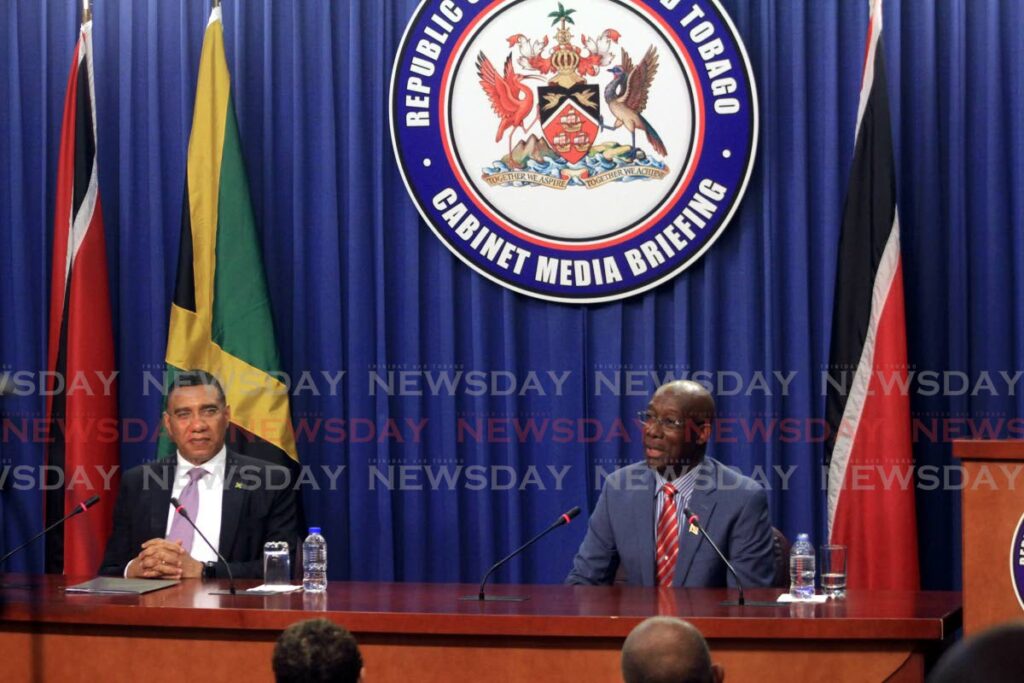Jamaica calling

ON MONDAY, a memorandum of understanding (MoU) was signed between this country and Jamaica in the hope of bolstering trade between both nations.
But the nature of the agreement itself was an acknowledgement of the challenges to trade that have long hampered efforts at closer economic integration.
Foreign Affairs Minister Dr Amery Browne and Jamaica’s Foreign Affairs Minister Kamina Johnson Smith signed the MoU establishing a trade complaints mechanism that will create an avenue “for the expeditious resolution of trade complaints.”
Those complaints and conflicts reflect a history of tensions, if not downright animosity, amid actors in both markets. Such tensions arguably reflect cultural, not just logistical, challenges to the free movement of goods.
The signing of the agreement came as this country rolled out the red carpet to welcome Jamaican prime minister Andrew Holness as part of this country’s commemoration of 60 years of independence.
Mr Holness, whose country also celebrated 60 years of independence earlier in August, enjoyed the rare distinction of being a guest at Wednesday morning’s Independence Day parade.
It was only a few weeks ago that this country hosted another key Caricom leader, Guyana’s president Dr Mohamed Ifraan Ali, and made similar commitments in relation to bolstering trade collaborations, with emphasis on agriculture and food security.
For the sake of all concerned, we can only hope that these bilateral agreements go beyond the making of mere promises and lead to action.
The pomp and circumstance surrounding both visits did not conceal the evident need for effective follow-up action.
Both the TT Prime Minister and Mr Holness were united this week in extolling the virtues of deepening exchanges between both nations, including in relation to the Caricom Single Market and Economy (CSME).
But it was only a few years ago, in 2016, that Dr Rowley was called to Jamaica by Mr Holness amid plans for a boycott of TT goods.
A year prior, a high-profile experiment in air travel cooperation, which saw Caribbean Airlines Limited (CAL) acquire Air Jamaica, came to an end in failure.
Even further back, though we this week marked the events of 1962, it should also not be forgotten that this was the year of the collapse of the West Indian Federation after Jamaica pulled out, prompting TT’s prime minister Dr Eric Williams to declare “one from ten leaves nought.”
Only a few years ago, a split in Caricom occurred which saw Jamaica meet separately with representatives of ex-US president Donald Trump.
The challenges to regional trade include bureaucracy, crime and social instability and climate change – all of which make it harder for businesses to access larger markets.
But the challenges are also political and cultural.
Despite a shared history, as evident this week by the fact of TT and Jamaica’s shared diamond independence anniversary, and despite much cultural overlap, there remains a spirit of divisiveness.
Both Dr Rowley and Mr Holness are hopeful that the world is changing and things are thawing between our two nations. Perhaps both believe a free flow of goods might help people come together. It might be that it is the other way around.


Comments
"Jamaica calling"